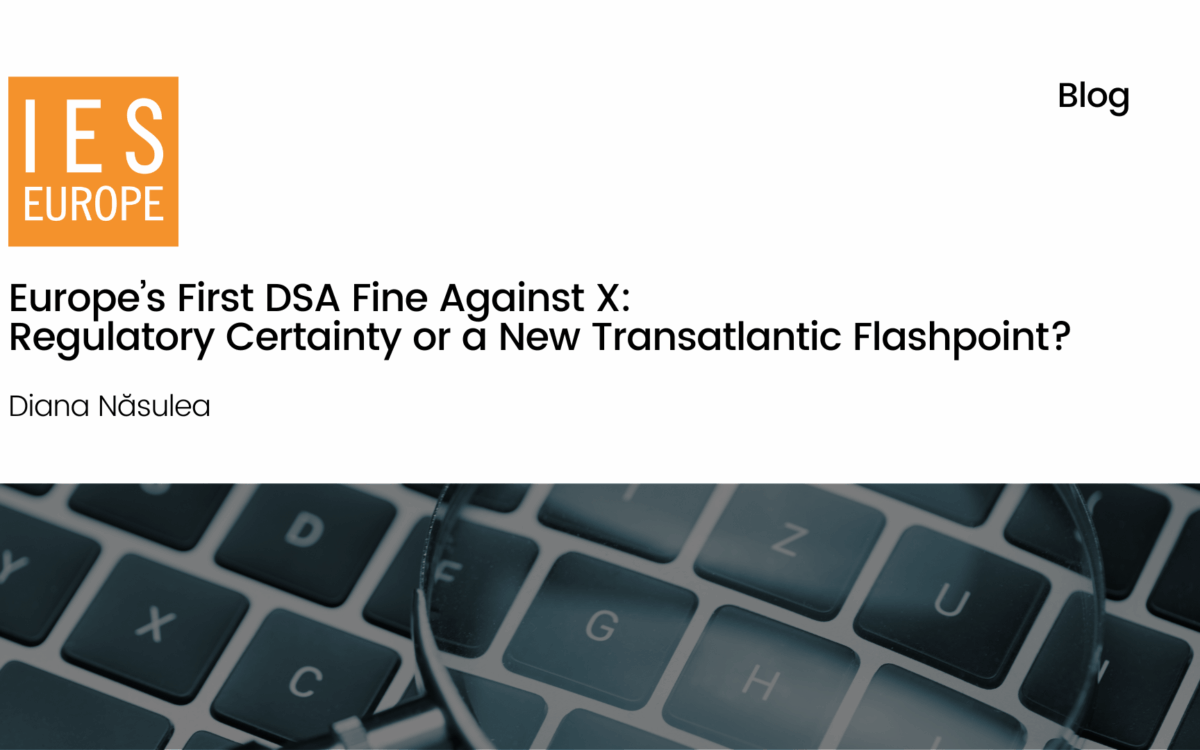The EU Must Legislate for the Future, Not Regulate the Past: The Google Fine

The EU Must Legislate for the Future, Not Regulate the Past: the Google Fine
Lucinda Ritchie // 30 June 2017
After a 7 year investigation, the European Commission’s Margrethe Vestager announced on 27th June a €2.4 billion fine against search engine giant Google. Google is accused of unlawfully promoting their own online comparison-shopping results ahead of smaller competitors, and faces a further two investigations against both its Android mobile operating system and its advertising activities.
Vestager’s crusade marks the first time a governmental actor has intervened in Google’s operations, an action that could damage the company’s reputation considerably. However, the question arises as to whether these charges will be of any real effect. Traders in New York noticed a 1% dip in the price of Alphabet (Google’s parent company) shares, a wobble with no serious long term implications, and the firm retains it’s place on the podium as that with the second most valuable stock in the world behind Apple. It is also possible that in the face of Google’s formidable legal department and a carefully compiled appeal, the Commission’s nerve may falter, especially considering how long it will take to negotiate precise changes.
This action can be perceived as a misguided foray into platform regulation. Whilst it demonstrates ultimately well-intentioned sentiments, they’ve been applied to an inappropriate issue. The issue at stake is 7 years out of date; as the FT has argued, price comparison websites are not of huge concern to many people across Europe.
While it is clear that the EU, and the rest of the world, must figure out a way to clearly and fairly hold tech giants to account and to the rule of law, this example demonstrates the limitations and difficulties consequent of the bureaucratisation of market competition.
The incomprehensibly vast reaches of the Internet are such that require rigorous and considered responses rather than knee-jerk reactions, intended as reassertions of EU hegemony over transatlantic ‘threats’.
Vestager has set a dangerous precedent, dangerous in so far as it commits the EU to an open-ended battle with tech companies – a battle which, given the exceptionally fast pace of technological advancements, will be perpetually retrospective.
Other Internet companies such as Facebook, Amazon and Apple that, like Google, have developed natural “monopolies” over sectors like social media, e-commerce or electronics should adjust their strategies accordingly to avoid Vestager’s scrutiny themselves. They have been warned.
One might have thought that a glance at the downward trajectory of Microsoft’s market dominance following their 2004 fine would clearly prove both the precarious nature of these ‘monopolies’, and also the extent to which the Commission overestimates and overstates the security and longevity of these major players’ positions.
Such a misdiagnosis suggests that the EU is yet to grasp exactly how these digital actors operate within their market, a market that should be understood as distinct and one defined by more elastic and permeable parameters. Such an environment necessitates choice and competition, the EU must be careful not to impose roadblocks upon such a dynamic and mobile model.
However, it should be emphasised that the ultimate aim of creating a viable and fair set of regulations to monitor these firms is essential to the EU’s securing of a place in the world of tomorrow.
Such a challenge as that posed by new digital and online markets is arguably a good test of the flexibility and efficiency of the EU’s legislative process – should the EU be able to effectively keep abreast, and in tandem, with global tech corporations and their activities, it will be in a very strong position to broker future deals and play a leading role in the establishment of workable digital legislation.
Whilst Vestager may plead the consumer’s case in justifying such an aggressive penalty, this narrative rings rather hollow. Surely the consumer can denounce any failings Google might have by choosing not to use their services?
It is likely that Brussels’ whip-cracking is motivated less by concern for the consumer and more by the prospect of the state of their coffers post-Brexit…
Further reading:
Antitrust and the challenge of regulation for online platforms
EPICENTER publications and contributions from our member think tanks are designed to promote the discussion of economic issues and the role of markets in solving economic and social problems. As with all EPICENTER publications, the views expressed here are those of the author and not EPICENTER or its member think tanks (which have no corporate view).



